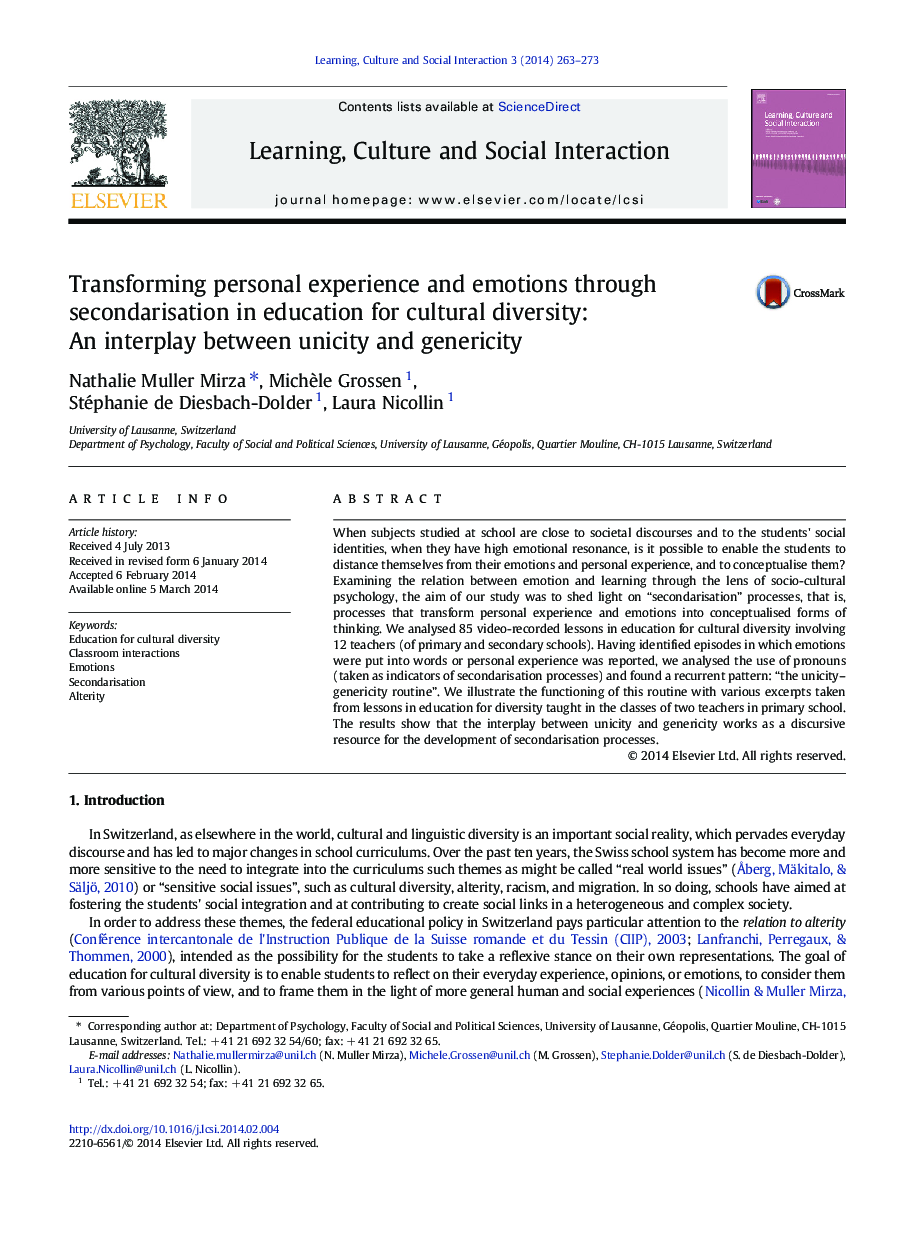| Article ID | Journal | Published Year | Pages | File Type |
|---|---|---|---|---|
| 364361 | Learning, Culture and Social Interaction | 2014 | 11 Pages |
•Education for cultural diversity (ECD) deals with sensitive social issues.•It refers to the students' personal experience and raises emotional reactions.•A challenge of ECD is to succeed in developing secondarisation processes.•A unicity–genericity routine was observed in classroom interactions.•This routine worked as a discursive resource for secondarisation processes.
When subjects studied at school are close to societal discourses and to the students' social identities, when they have high emotional resonance, is it possible to enable the students to distance themselves from their emotions and personal experience, and to conceptualise them? Examining the relation between emotion and learning through the lens of socio-cultural psychology, the aim of our study was to shed light on “secondarisation” processes, that is, processes that transform personal experience and emotions into conceptualised forms of thinking. We analysed 85 video-recorded lessons in education for cultural diversity involving 12 teachers (of primary and secondary schools). Having identified episodes in which emotions were put into words or personal experience was reported, we analysed the use of pronouns (taken as indicators of secondarisation processes) and found a recurrent pattern: “the unicity–genericity routine”. We illustrate the functioning of this routine with various excerpts taken from lessons in education for diversity taught in the classes of two teachers in primary school. The results show that the interplay between unicity and genericity works as a discursive resource for the development of secondarisation processes.
